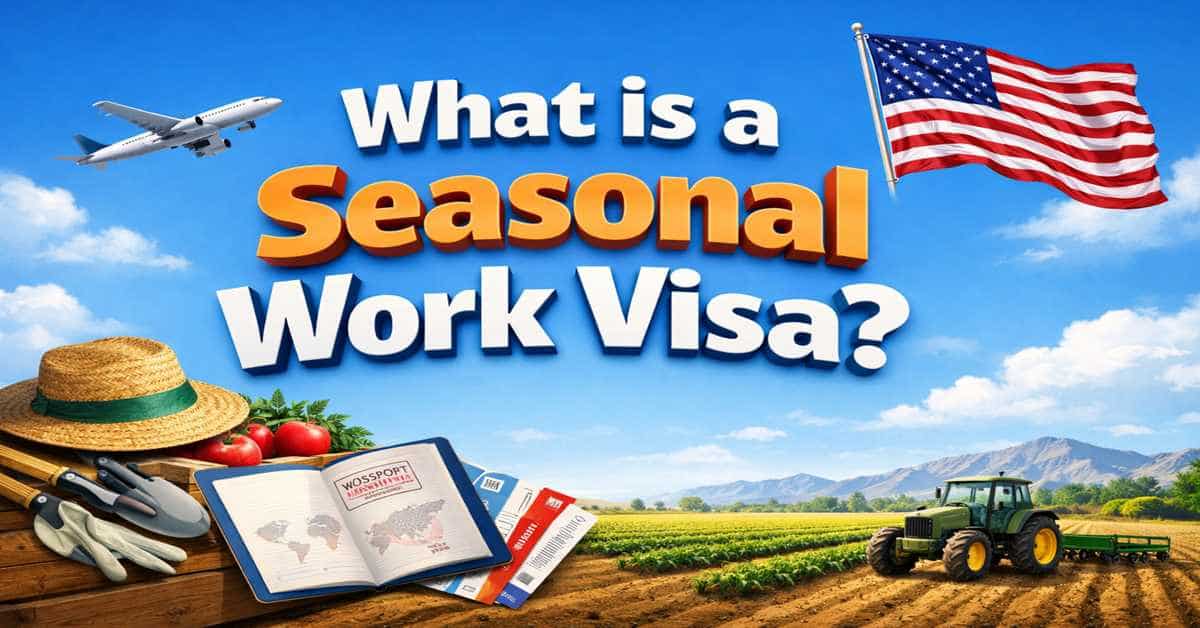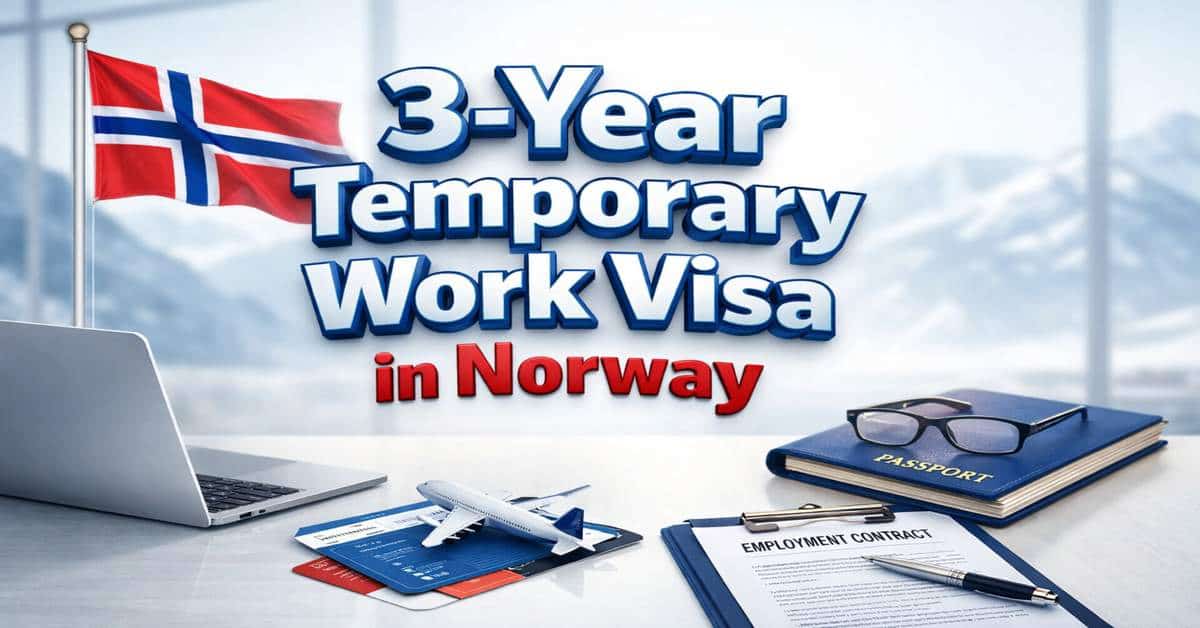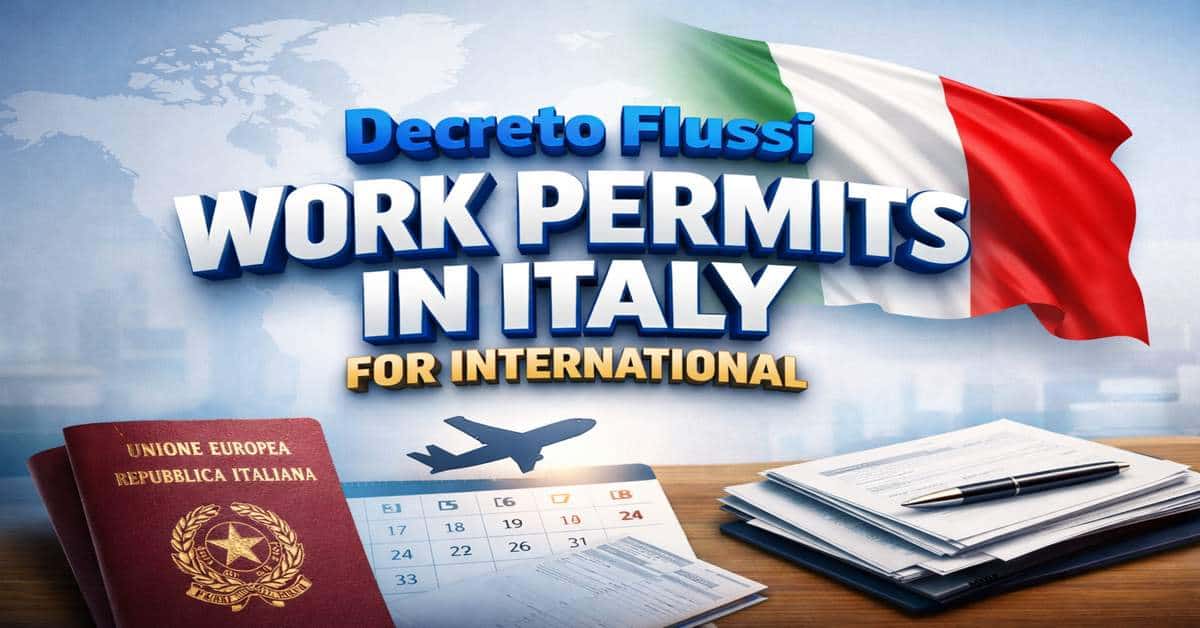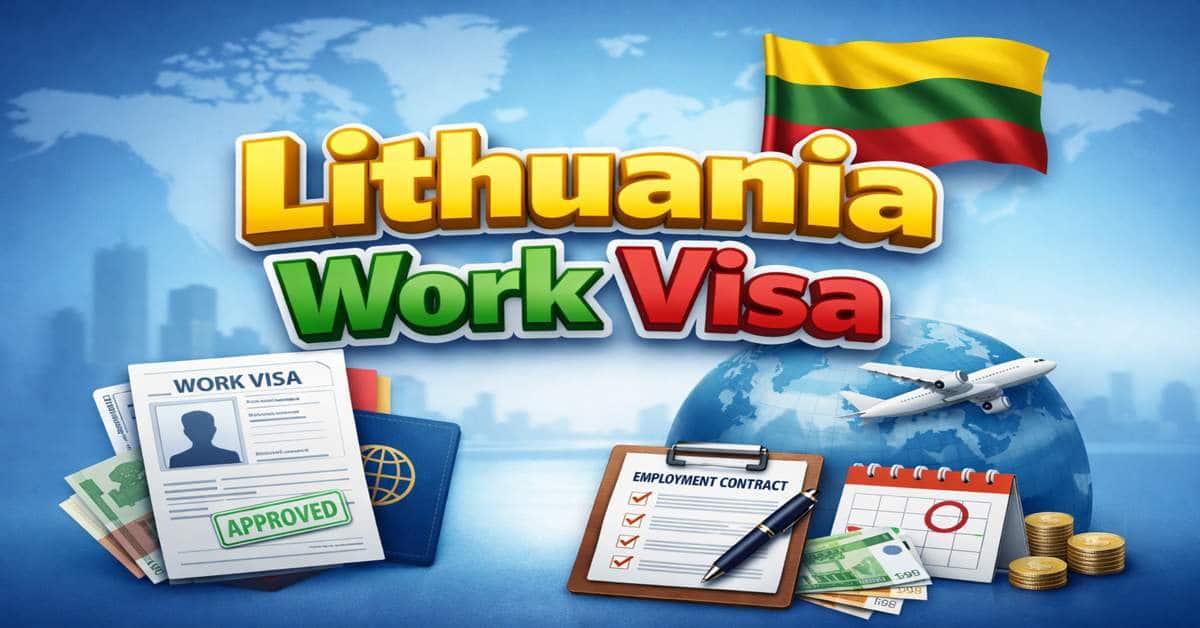Lithuania Work Visa – Requirements, Fees & Processing Time
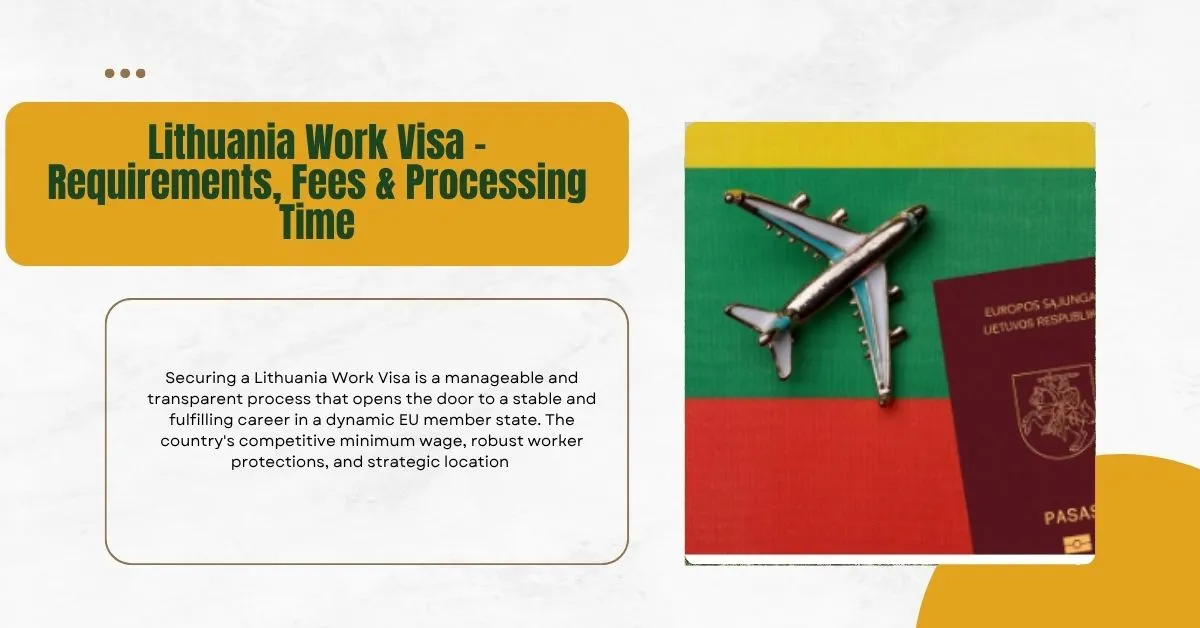
The Lithuania work visa allows foreign nationals to live and work legally in Lithuania. Key requirements include a valid passport, job offer from a Lithuanian employer, and proof of qualifications. Fees vary depending on visa type, while processing time typically ranges from a few weeks to a couple of months. Applicants must provide supporting documents such as employment contracts, proof of accommodation, and health insurance. Understanding these requirements ensures a smooth application process, helping foreign workers plan their relocation, meet legal obligations, and begin employment in Lithuania efficiently. This guide provides a clear overview of everything needed to secure a work visa and start a career in Lithuania.
Read Also: Labor Shortage Jobs in Lithuania
Why Work in Lithuania? Key Advantages?
- Strategic EU Location: As a member of the European Union and the Eurozone, Lithuania offers stability and easy access to the broader European market.
- Growing Tech Hub: Vilnius, the capital, is a fast-growing center for FinTech, ICT, and biotechnology, attracting global talent.
- Favorable Working Conditions: The country adheres to strong EU labor standards, including a minimum monthly wage of €924 (as of 2026) and a minimum of 20 days of paid annual leave.
- Social Safety Net: Workers benefit from a comprehensive social security system, including health insurance and sick leave coverage.
- Affordable Living: Compared to Western European capitals, Vilnius offers a relatively low cost of living without sacrificing quality of life.
Types of Work Authorization for Non-EU Citizens:
The correct pathway depends on your qualifications, the job offer, and the duration of employment.
| Visa/Permit Type | Who It’s For | Maximum Validity | Key Requirement |
|---|---|---|---|
| EU Blue Card | Highly-skilled professionals | Up to 4 years | Higher education degree + salary ≥ 1.5x average Lithuanian gross salary. |
| Temporary Residence Permit & Work Permit | Most skilled non-EU workers | 2 years (renewable) | A confirmed job offer from a licensed Lithuanian employer. |
| National (D) Visa | Short-term entry to work | 1 year | Granted based on an approved Temporary Residence Permit application. |
| Seasonal Work Permit | Temporary workers in agriculture, tourism, etc. | Up to 9 months | Proof that no EU worker is available for the role. |
Important Note: The process is employer-initiated. The Lithuanian company must first obtain a work permit for you from the Labour Exchange before you can apply for your visa and residence permit.
The Step-by-Step Application Process:
The journey involves coordinated steps between the employer and the employee.
Stage 1: Employer’s Responsibilities in Lithuania
- Labor Market Test: The employer must demonstrate that no suitable candidate was found from the Lithuanian/EU labor market for the position.
- Apply for a Work Permit: The employer submits an application for a work permit to the Lithuanian Labour Exchange on your behalf.
- Receive Work Permit Approval: Once approved, the employer sends you the official work permit decision, which is required for your visa application.
Stage 2: Employee’s Responsibilities (From Abroad)
- Apply for a National (D) Visa: With the work permit approval, you apply for a long-stay (D) visa at the nearest Lithuanian Embassy or Consulate. This visa allows you to enter Lithuania to finalize your residency.
- Submit Documents for TRP: Along with the visa application, you typically submit your application for a Temporary Residence Permit (TRP).
- Travel to Lithuania: Once the D visa is issued, you can travel to Lithuania.
Stage 3: Employee’s Responsibilities (After Arrival in Lithuania)
- Apply for a Temporary Residence Permit (TRP): If not already submitted abroad, you must apply for your TRP at the Migration Department in Lithuania within the validity of your D visa.
- Provide Biometrics: You will be required to provide your fingerprints and a photograph for the residence permit card.
- Receive Residence Permit: Your TRP card is your official proof of the right to live and work in Lithuania. The initial permit is typically valid for two years and tied to your employer.
Essential Document Checklist:
Prepare the following for your visa and residence permit application:
- Valid Passport: Must be valid for at least three months beyond the intended stay.
- Work Permit Approval: The official decision issued to your employer.
- Employment Contract: Signed by you and your Lithuanian employer.
- Proof of Qualifications: Educational diplomas and professional certificates, authenticated as necessary.
- Proof of Sufficient Funds: Bank statements or the employment contract proving adequate income.
- Health Insurance: Valid for the entire duration of your stay until you are covered by the Lithuanian state health system.
- Clean Criminal Record: A police clearance certificate from your country of residence.
Processing Times and Costs:
- Work Permit Processing: Approximately 1-2 months.
- Temporary Residence Permit Processing: Up to 4 months from within Lithuania.
- Costs: Work permit fees are typically €120-€200, while the Temporary Residence Permit application fee is approximately €120.
Who Does Not Need a Work Visa?
Citizens of the European Union (EU), European Economic Area (EEA), and Switzerland have the right to live and work in Lithuania without a permit. Their non-EU family members apply for a residence card of a family member of an EU citizen.
Conclusion:
Securing a Lithuanian work visa is a manageable and transparent process that opens the door to a stable and fulfilling career in a dynamic EU member state. The country’s competitive minimum wage, robust worker protections, and strategic location make it an increasingly attractive option for global talent.
While the application requires careful preparation of documents like the work permit and mediation letter, the reward is a chance to live and work in a nation that successfully blends historic charm with modern innovation. By understanding the requirements and following the official channels, you can confidently embark on your professional journey to Lithuania.
Frequently Asked Questions
What is the minimum salary in Lithuania?
The gross minimum wage in Lithuania is €924 per month. However, for highly skilled roles, particularly those applying for the EU Blue Card, the salary must be at least 1.5 times the average Lithuanian wage.
What are the main types of work visas?
The primary visas are the EU Blue Card for highly skilled professionals, the National Work Permit (D Visa) for general employment, and the Seasonal Work Visa for temporary roles in agriculture and tourism.
